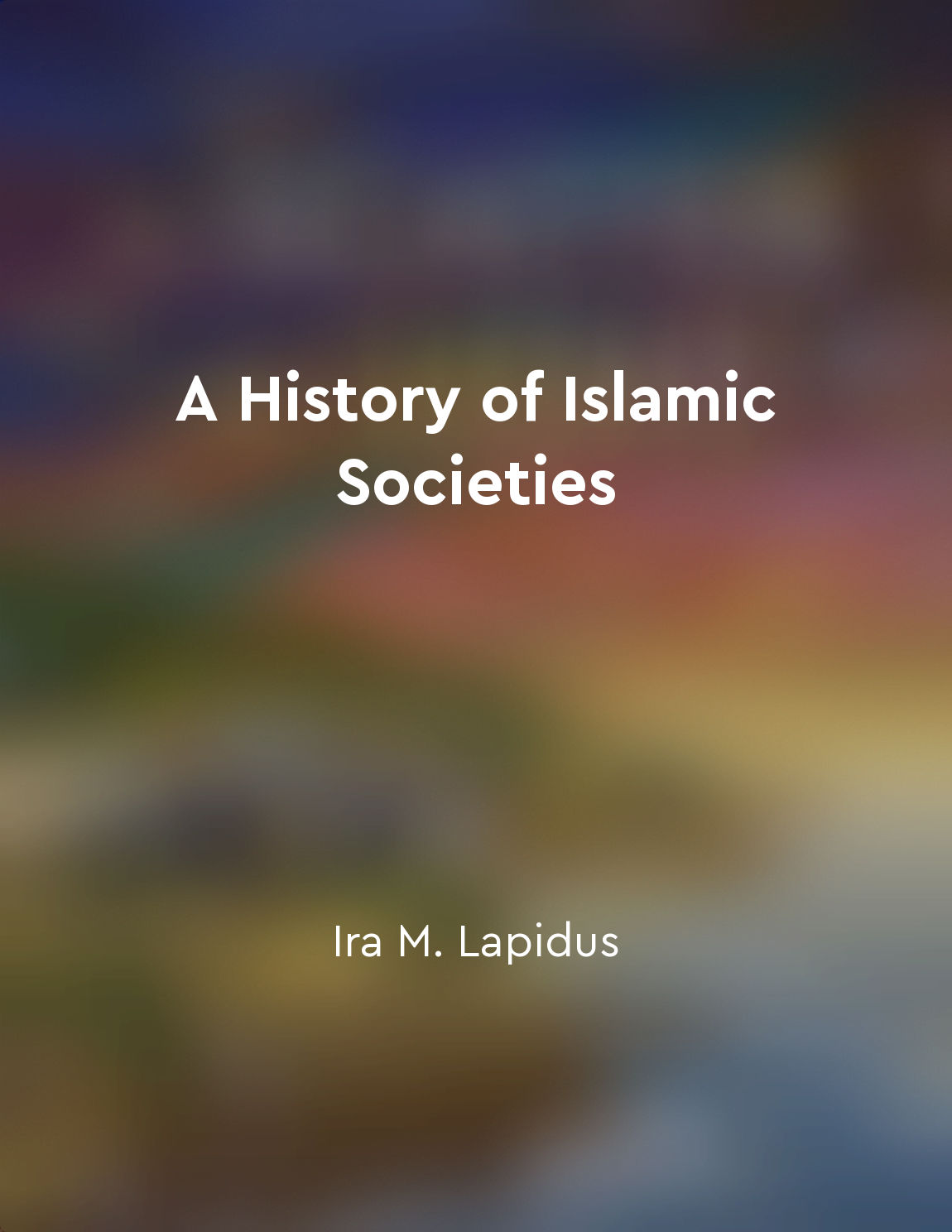Early Islamic societies developed complex political structures from "summary" of A History of Islamic Societies by Ira M. Lapidus
The early Islamic societies in the Middle East and North Africa developed intricate political structures that played a crucial role in governing these vast territories. These political systems were characterized by a combination of centralized authority and decentralized administration. At the top of the political hierarchy was the caliph, who was both a political and religious leader. The caliph was seen as the successor to the Prophet Muhammad and held significant power over the state and the Muslim community. Beneath the caliph were various levels of government officials, bureaucrats, and advisors who helped in the administration of the state. The caliphate was divided into provinces, each governed by a governor appointed by the caliph. These governors were responsible for maintaining law and order, collecting taxes, and overseeing the implementation of state policies in their respective regions. The early Islamic societies also developed a sophisticated legal system based on Islamic law, or Sharia. Sharia served as the foundation of the state's legal framework and governed all aspects of life, including family matters, business transactions, and criminal law. Judges, known as qadis, were appointed to interpret and apply Sharia law in courts of law. Furthermore, the early Islamic societies had a complex system of taxation that helped fund the state and its various institutions. Taxes were collected from both Muslims and non-Muslims and were used to finance public works, the military, and the caliph's court. The state also played a role in regulating trade and commerce, ensuring economic stability and growth. In addition to these political structures, the early Islamic societies also had a vibrant cultural and intellectual life. Cities like Baghdad, Cairo, and Cordoba became centers of learning, where scholars from different backgrounds and disciplines gathered to exchange ideas and knowledge. The translation of Greek, Persian, and Indian texts into Arabic also played a crucial role in the development of Islamic civilization.- The political structures of early Islamic societies were complex and multifaceted, reflecting the diverse and dynamic nature of these societies. The caliphate, decentralized administration, Sharia law, taxation system, and cultural achievements all contributed to the richness and sophistication of Islamic civilization during this period.
Similar Posts

The Abbasid Empire was a major force in shaping Islamic societies
The Abbasid Empire played a crucial role in the development and shaping of Islamic societies. The empire, which lasted from the...

Political Islam emerged as a powerful force in the 20th century
In the 20th century, Political Islam gained momentum as a significant force in the Islamic world. This emergence can be attribu...

Laws define societal relationships
The fundamental idea of laws as defining societal relationships is a concept deeply embedded in the history of early societies....
Early life of Prophet Muhammad
The early life of Prophet Muhammad is a subject of great significance in the Islamic tradition. It provides valuable insights i...

